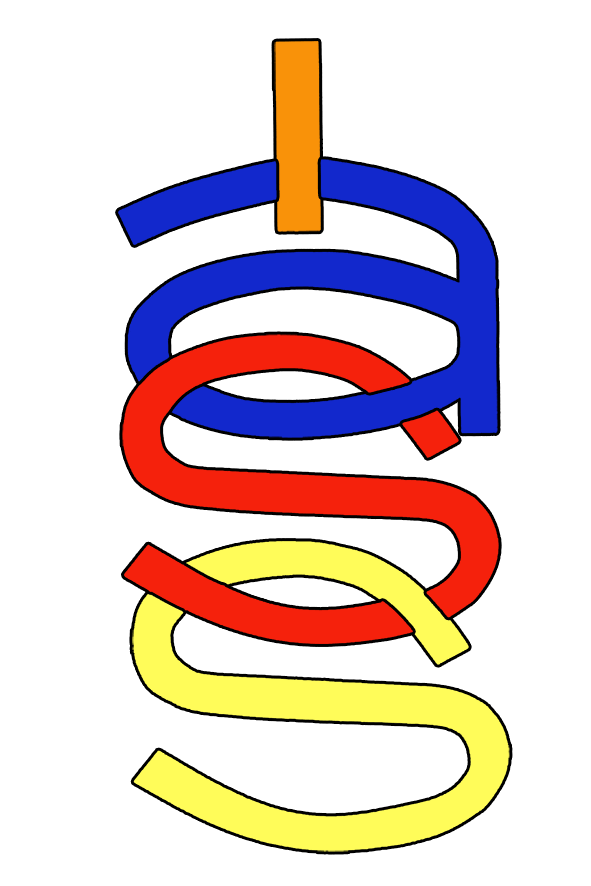Workshop 02:
Structural Folding for Architectural Design
Tutors:
Pierluigi D’Acunto, Shibo Ren and Alessandro Tellini
Date and Time:
Sunday afternoon, 16 August 2015, 13h00-17h00
Location:
Conference location, Muziekgebouw aan ‘t IJ
Track:
Digital Technology and BIM track
Introduction
Thanks to the application of structural folding to design, it is possible to produce efficient structures that are able to resist the external applied loads through their form. Moreover, the use of folding makes it possible to generate complex geometries that can address diverse spatial requirements. As a collaboration between the Chair of Structural Design at ETH Zürich and Arup Amsterdam, the proposed workshop will introduce a design method for folding that integrate structural and spatial parameters. The objective is to provide the participants with an understanding of design experimentation with folding and the ability to build up simple digital and physical models.
Description
The workshop is intended to last for half a day and consists of two parts: a theoretical introduction and a practical design implementation. In the first part of the workshop, a novel design method to integrate structural folding in architecture will be introduced to the participants. The method relies on the implementation of simple geometrical operations through a three-dimensional design process.

According to the method, a surface is virtually folded within a previously defined tetrahedral grid to generate an enclosed space that also perform as a structure. Being the folded surface created on a tetrahedral grid, a load-bearing configuration can be activated within it that performs as a pin-jointed three-dimensional truss; in such a kinematically-stable spatial structure, the folded edges correspond to the rods of the truss, loaded either in tension or in compression, and the vertices represent the hinged nodes. Following the theory of plasticity and its lower bound theorem, the structural behavior of the folded geometry can be evaluated and visualize with the help of graphic statics. In the second part of the workshop, the participants will familiarize themselves with the use of a parametric digital tool, in the form of a Rhino-Grasshopper Plug-In. The tool is directly correlated to the previously introduced design method and will allow the participants to undertake a simple design exploration on folding at the scale of a pavilion. The digital exploration will be supported by the development of physical models with the use of sheet material. The proposed design process has been successfully applied in previous design experiments; for the development of a multi-purpose steel folded table.

Tutors
Pierluigi D’Acunto
Dipl.Ing.Arch. - AA M.Arch. ETH Zürich – Chair of Structural Design http://www.schwartz.arch.ethz.ch/Team/pierluigid'...

Pierluigi D’Acunto received his Diploma in Building Engineering and Architecture with Honours from the University of Pisa (Italy) in 2007 and a Master of Architecture with Distinction from the Architectural Association School of Architecture in London (UK) in 2012. Since 2006, he has been gaining professional experience as an Architect and an Engineer in private practices in Italy and Japan. He has been awarded in several national and international architectural competitions. He is currently Lecturer, Research Assistant and PhD candidate at the Chair of Structural Design at the Swiss Federal Institute of Technology (ETH) in Zurich. His research is primarily focused on exploring the convergence of Architecture and Engineering within the domain of Emergence.
Shibo Ren
Structural Engineer and Computational Designer Arup Amsterdam http://www.arup.com/Global_locations/Netherlands/...

Shibo Ren is a structural engineer and computational designer at Arup Amsterdam. He received his Master degree with distinction on structural engineering from Delft University of Technology and received another Master degree on architecture (EmTech) from Architectural Association School of Architecture in London. He has been acquiring diverse professional experience on complex and multidisciplinary projects since 2007. His practices and interest focus on the development of integral design at the intersection of structural engineering and complex geometry, employing computational design strategies and digital fabrication for designing, thinking and analysing.
Alessandro Tellini
ETH Zürich – Rapid Architectural Prototyping Laboratory http://www.arup.com/Global_locations/Netherlands/...

Alessandro Tellini studied industrial and product design at the University of Applied Sciences and Arts Northwestern Switzerland and has a formal education as graphic designer from the Basel School of Design (Switzerland). He joined the Rapid Architectural Prototyping Laboratory (Raplab) at the Department of Architecture ETH Zurich (Switzerland) in 2009 as Research Assistant and is Head of the Raplab since 2011.
Minimum number participants:
10
Registration:
€ 90,-
